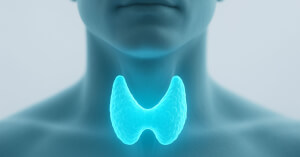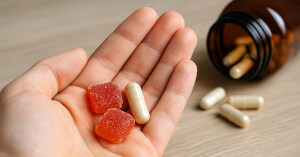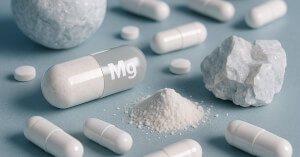
12 Best Supplements to Lower Blood Sugar
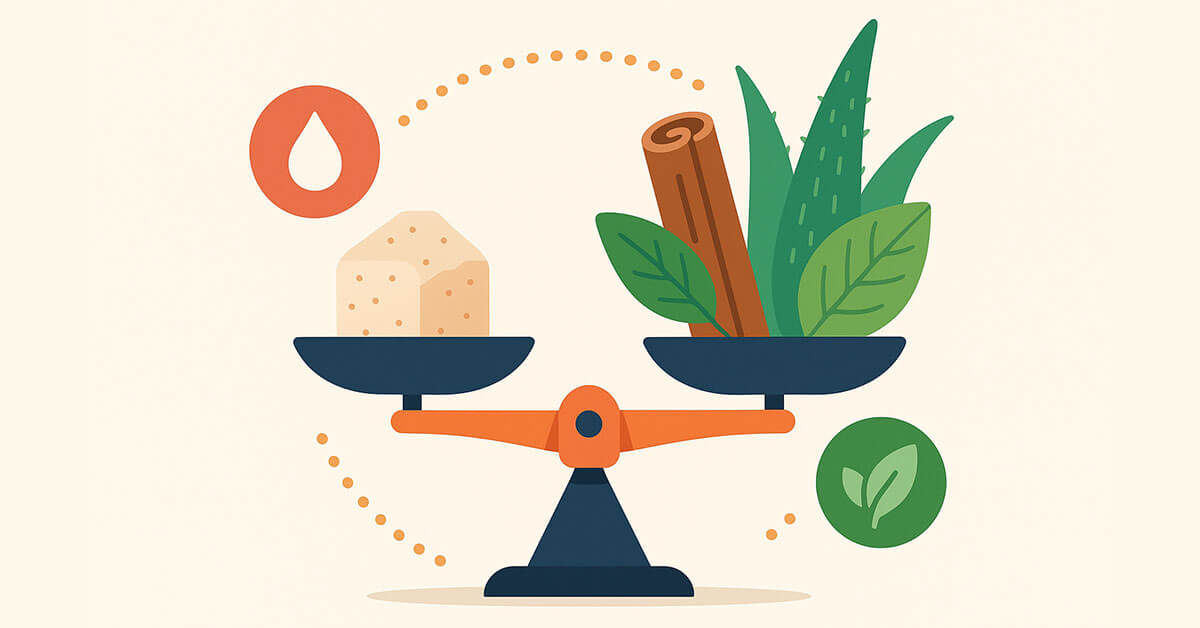
Keeping your blood sugar steady isn’t just about avoiding the mid-afternoon crash or steering clear of that jittery "hangry" feeling. It’s about long-term health, energy balance, and even protecting your heart and metabolism. While food, exercise, and sleep always come first, the right supplements can give your body the extra nudge it needs. So, which ones are actually worth your attention? Let’s walk through the 12 best options backed by research.
Why Blood Sugar Balance Matters More Than You Think
Most people only think about blood sugar in the context of diabetes. But the truth? Everyone benefits from keeping glucose in check. When sugar levels swing too high or too low, your body scrambles to correct it. Over time, that rollercoaster ride can damage blood vessels, drain your energy, and mess with hormones that control appetite. No surprise that blood sugar control sits at the center of weight management, mental focus, and even healthy aging.
Supplements won’t replace good sleep or a balanced diet, but some nutrients and herbs have been studied for their ability to improve insulin sensitivity, reduce sugar absorption, or support pancreatic function. Think of them as small but mighty allies in your daily routine.
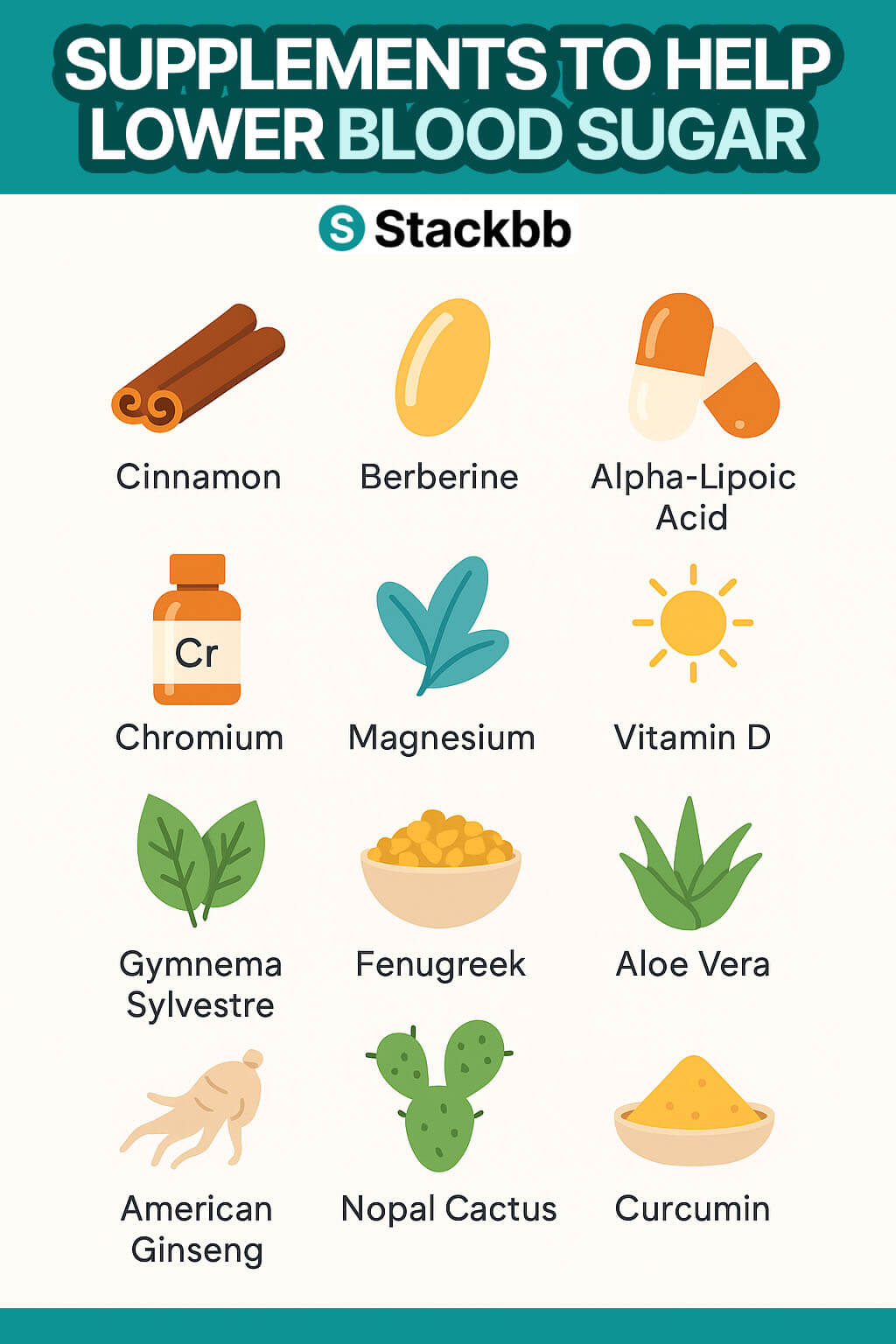
The 12 Best Supplements to Lower Blood Sugar
1. Cinnamon
This kitchen staple does more than spice up your oatmeal. Studies suggest that certain compounds in Cinnamon can mimic insulin, helping cells absorb glucose more efficiently. It may also slow gastric emptying, meaning fewer sugar spikes after meals. The effect isn’t dramatic for everyone, but for some, it can make a noticeable difference in post-meal energy levels.
✔️ How to use it: 1–6 g daily (about 0.5–2 teaspoons). Capsules are often more reliable than raw powder for consistency.
2. Berberine
If one supplement deserves the spotlight, it’s Berberine. Extracted from plants like barberry, this compound works on a cellular level to activate AMPK, an enzyme that improves insulin sensitivity and glucose uptake. In clinical trials, berberine has shown effects comparable to metformin, a standard diabetes medication. The catch? It can cause digestive upset in higher doses, so timing matters.
✔️ How to use it: 500 mg, two to three times daily with meals. Avoid if you’re on certain medications without medical supervision.
3. Alpha-Lipoic Acid (ALA)
ALA is a potent antioxidant that supports mitochondrial function, the energy factories inside your cells. Beyond that, it enhances glucose transport into muscles, reducing circulating sugar levels. Some people also notice improved nerve health, which matters if you’re worried about diabetic neuropathy.
✔️ How to use it: 300–600 mg daily, preferably before meals. Often combined with other antioxidants for added effect.
4. Chromium
Chromium doesn’t get much hype, but this trace mineral is vital for carbohydrate metabolism. It helps insulin bind more effectively to its receptors, improving how cells take in glucose. Chromium supplements tend to help most if your diet is loaded with processed foods and light on whole grains, since those habits often leave you short on this trace mineral.
✔️ How to use it: 200–1,000 mcg daily, usually as chromium picolinate. Best taken with food.
5. Magnesium
It’s no secret, most adults don’t get enough Magnesium. That matters because this mineral plays a role in hundreds of enzymatic reactions, including those tied to insulin sensitivity. Low magnesium status is consistently linked with a higher risk of type 2 diabetes. Replenishing levels can make blood sugar regulation smoother and calmer.
✔️ How to use it: 200–400 mg daily, ideally as magnesium glycinate or citrate for better absorption.
6. Vitamin D
Known for bone health, vitamin D also influences how your body handles glucose. It modulates immune function and may protect pancreatic beta cells, the ones that produce insulin. Research shows people with low vitamin D levels often struggle more with blood sugar control. If you rarely see the sun, pay attention here.
✔️ How to use it: 1,000–2,000 IU daily, though some need higher doses based on blood tests. Always check levels before going big.
7. Gymnema Sylvestre
This Ayurvedic herb literally translates to “sugar destroyer,” and for good reason. Gymnema compounds can reduce sugar absorption in the intestines and even dull the perception of sweetness on the tongue. Some people notice fewer sugar cravings when taking it, which is half the battle with blood sugar management.
✔️ How to use it: 200–400 mg daily, usually standardized to 25% gymnemic acids. Take before meals for best effect.
8. Fenugreek
Used in traditional medicine for centuries, Fenugreek seeds are rich in soluble fiber that slows carbohydrate digestion. They also contain compounds that may directly enhance insulin function. The result? Smoother glucose responses after eating starchy meals.
✔️ How to use it: 5–10 g of soaked seeds or 500–1,000 mg extract daily. Start slow, fenugreek can cause digestive gas.
9. Aloe Vera
You probably think of Aloe Vera for sunburn, but the gel inside this plant has metabolic perks too. Research suggests aloe supplementation may lower fasting blood sugar and improve HbA1c levels (a long-term marker of glucose control). The effect is modest but notable, especially for people with prediabetes.
✔️ How to use it: 300–500 mg of aloe extract or 1–2 tablespoons of pure aloe gel daily. Look for decolorized, purified products to avoid laxative effects.
10. American Ginseng
Ginseng has a reputation for energy and focus, but American ginseng specifically has been studied for its ability to reduce post-meal glucose spikes. It appears to improve cellular glucose uptake, making it a smart choice before carb-heavy meals.
✔️ How to use it: 200–400 mg of standardized extract 30 minutes before meals. Effects can vary depending on quality.
11. Nopal Cactus (Prickly Pear)
A staple in Mexican cuisine, Nopal Cactus is rich in fiber and antioxidants. Several studies suggest it can reduce post-prandial (after-meal) glucose levels, likely due to its gel-like fiber slowing sugar absorption. It’s a natural, food-first way to support glucose balance.
✔️ How to use it: 300–500 mg extract or 100 g of fresh pads cooked as food. Easy to add to soups or stir-fries.
12. Curcumin (Turmeric Extract)
Curcumin, the bright yellow compound in turmeric, has anti-inflammatory properties that extend to glucose control. It may improve insulin sensitivity and reduce chronic inflammation, two key factors in metabolic health. Bonus: it’s also being studied for heart and brain protection.
✔️ How to use it: 500–1,000 mg daily of standardized curcumin with black pepper extract (piperine) for better absorption.
Other Ways to Keep Blood Sugar in Check
Supplements help, but let’s not forget the basics. Regular movement, whether it’s a brisk walk after dinner or a few strength sessions per week, remains the single most effective way to keep glucose stable. Pair that with a diet built on whole foods, fiber, and adequate protein, and you’re already ahead of the curve. Sleep is another underrated player; even one night of poor rest can mess with insulin sensitivity.
And stress? It pushes blood sugar up, thanks to cortisol. Meditation, journaling, or simply stepping outside can dial it down. It sounds simple, but consistency beats perfection here.
Precautions Before You Stock Your Cabinet
Here’s the part that often gets glossed over: supplements aren’t risk-free. Many of these, like berberine or cinnamon, can interact with medications. If you’re already taking drugs for diabetes or heart health, stacking supplements on top could cause blood sugar to dip too low. Pregnant and breastfeeding women should be especially careful. Always, always check with a healthcare provider before starting something new.
Final Thoughts
Lowering blood sugar naturally isn’t about chasing a miracle pill, it’s about stacking small, science-backed habits that add up. From cinnamon and berberine to less mainstream options like prickly pear, there are plenty of tools available. But they only shine when paired with a healthy lifestyle. Consider these 12 supplements as allies, not shortcuts, and you’ll give your body the best shot at steady energy and long-term health.
This article was originally published on Stackbb, your trusted source for science-based supplement guides.

